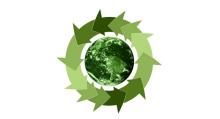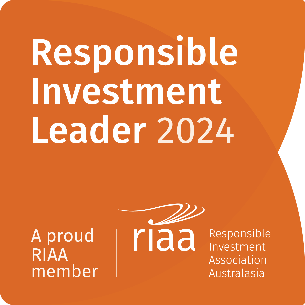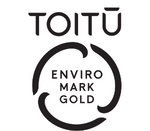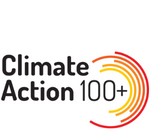Investing for a Circular Economy

9 January 2020
In July 2019, the New Zealand Government banned the use of single-use plastic shopping bags, with the intention of reducing the amount of plastic in our environment. The introduction of this policy puts New Zealand amongst the club of 120+ countries with some form of regulation on plastic bags. Globally, at least eight million tons of plastic end up in our oceans every year - this contributes almost 80% of all marine debris, with 3% of this plastic waste being made up of microplastics (pieces that are smaller than our fingernails). These plastic wastes can harm the marine life in our oceans and just as significantly, make its way up the food chain and end up on our dinner plates. Joining the coalition of countries globally to have regulation on single-use plastic bag appears to be the right thing to do.
But when it comes to climate change and overall environmental impact, plastic bag alternatives such as paper and cotton bags are actually much worse for the planet.
As the studies demonstrate, a person will have to use a bleached paper bag 43 times in order to a achieve the same climate change impact as a single-use plastic bag, a conventional cotton bag 7,100 times and an organic cotton bag 20,000 times! Surprisingly the studies are clear that single-use plastic bags are the most environmentally friendly option because alternative packaging materials have higher carbon emission and energy use. The problem is that as consumers, we only look at the impact of the things that we use at the end of their lifecycle and fail to see the cost of making and supplying the goods. By banning single-use plastic bags, we have just shifted the environmental burden from our oceans to our air and land.
It is a somewhat of an irony that plastic bags have become one of the world’s most hated objects when it comes to the fight against environmental pollution, given that Sten Gustaf Thulin originally invented them to help save the environment as an alternative to paper bags which required us to chop down trees to produce.
The countries in the top 10 largest emitters of marine plastic debris all have some form of regulations on plastic bag use, many of them for much longer than New Zealand. Yet the annual volume of plastic debris entering our ocean doesn’t appear to have decreased. The evidence suggests that regulating the supply side of the equation has limited efficacy.
The real problem is that less than 20% of global plastic waste gets recycled. Plastic bags and other forms of plastic packaging are extremely energy efficient to produce and have become too convenient. This has made us lazy. Australia, for example, recovers only 32% of the plastic packaging it consumes every year. In New Zealand that figure is much lower at just 18%. This low recycling rate means that 252,000 tons of plastic ends up in our landfills every year, 8% of our landfill waste by weight, but 20% by volume! Instead of sending all that plastic into landfill, a more sustainable way of doing things is to apply a circular economy approach, and properly recycle and repurpose the plastic material. The benefit of this approach is that we can reduce the quantum of plastic waste entering our environment while having a lower reliance on plastic-alternative materials, which have higher climate change impact and energy use.
A circular economy is an economic system that aims to eliminate waste, reduce the amount of resources that we extract from our planet and recycle as much material as possible. In the last couple of years, we have seen significant growth in the numbers of consumers around the world who are increasingly aware of their environmental footprint on the planet, and there appears to be a genuine effort to drive change in our pattern of plastic consumption.
The good thing is that when it comes to sustainable packaging, the change in consumer preference is already causing companies to undertake initiatives of their own, independent of government regulation. For example, in 2018 Coca Cola launched its global “World Without Waste” initiative with the goals of making its packaging 100% recyclable by 2025 and to use 50% recycled material packaging by 2030. This global initiative positively influenced Coca Cola Amatil, a separate entity from Coca Cola Global, which is listed on the ASX and by the end of 2019, Coca Cola Amatil will make 7 out of 10 plastic bottles in Australia entirely from recycled plastic. Beyond the ultimate aim of making 100% of its plastic bottles out of recycled plastic, Coca Cola Amatil will also continue to implement initiatives to support a strong domestic Australian circular economy, including initiatives such as establishing a robust collection network to recycle plastic at the end of the bottle’s lifecycle.
Coca Cola Amatil’s efforts of creating a circular economy is not unique on the ASX. In 2018, Amcor, a company dual listed on the ASX and the NYSE, committed to develop all of their packaging to be recyclable or reusable by 2025. This is a monumental commitment as Amcor is the world’s largest supplier of plastic packaging and supplies directly to some of the world’s most well-known consumer brands, such as PepsiCo, Nestle and Unilever.
Back home in New Zealand, Freightways appears to be leading the charge amongst listed New Zealand companies when it comes to creating a domestic circular economy. A company typically associated with courier services, Freightways, also has a business segment named Information Management, which is dedicated to the collection and destruction of business documents and medical wastes. Over the last couple of years, this company has developed some unique capabilities around the processing and sorting of wastes, and these capabilities are transferrable from a recycling context.
One of the problems with recycling plastic is that there are so many different kinds of plastic, which all have different properties. Therefore, one of the major challenges during the recycling process is to have specialized processing lines to properly sort and prevent cross contamination. Using its specialized processing expertise, Freightways is currently doing trials around recycling plastic coffee cups and they are already recycling paper-based coffee cups by shredding them with old office papers - the end material from this process can be turned back into paper products up to seven times.
Whilst Freightways’ effort to grow in this area are very encouraging, we do note that when it comes to recycling wastes of all forms, New Zealand is ranked well below many OECD countries - the circular economy in New Zealand is still in its infancy. For a country that prides itself as having some of the world’s most pristine natural environments, we need to do more when it comes to recycling.
We at Devon Funds are optimistic about the investment opportunities of this trend. The growth of a circular economy has enormous potential to help deal with the increasing environmental stresses facing the globe, but the investment required to make meaningful change is significant. As this movement develops there is likely to be significant opportunities to deploy capital in a way that is rewarding both socially and financially. With our long history of engaging with companies on issues pertaining to the environment, social best practices and corporate governance (ESG), our recently launched Sustainability Fund will further align our investment approach to represent our client’s values and continue to deploy our knowledge to seek out investment opportunities within this space in the listed Trans-Tasman market.





